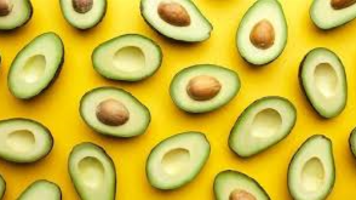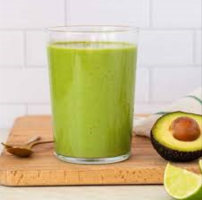Ever wonder why avocados are so popular around the world? From trendy avocado toast to creamy smoothies, this green superfruit has captured hearts and taste buds everywhere. But beyond its Instagram-worthy appearance lies a nutritional powerhouse that offers incredible health benefits – along with a few surprising risks you should know about.
These nutrient-dense fruits pack an impressive array of vitamins, minerals, and healthy fats that can transform your health. However, like any food, avocados come with some hidden dangers that many people overlook. From heart-healthy benefits to potential risks, plus delicious recipes to help you incorporate avocados into your daily routine, we’ve got you covered.

The Nutritional Profile of Avocados
Before diving into the specific health benefits, let’s examine what makes avocados so special. A single medium avocado contains approximately 234 calories and provides an impressive nutritional profile that includes healthy monounsaturated fats, fiber, potassium, folate, and vitamins K, C, and E.
The fat content of avocado are the healthy fats your body requires to perform at its best. The creamy texture comes from oleic acid, the same heart-healthy fat found in olive oil.
Health Benefits of Avocados
Heart Health Champion
Avocados are exceptional for cardiovascular health due to their high concentration of monounsaturated fats. These heart-healthy lipids improve overall heart function by lowering bad cholesterol levels while preserving good cholesterol. One avocado contains roughly 975 milligrams of potassium, an important mineral that also helps control blood pressure.
Weight Management Support
The combination of healthy fats and fiber creates a feeling of fullness that lasts longer than many other foods. This satiety effect can help reduce overall calorie intake throughout the day, making it easier to maintain a healthy weight.
Blood Sugar Regulation
The fiber and healthy fats in avocados help slow down the absorption of sugar into the bloodstream, preventing rapid spikes in blood glucose levels. This makes avocados an excellent choice for people managing diabetes or those looking to maintain stable energy levels throughout the day.
Enhanced Nutrient Absorption
One of the most remarkable benefits of avocados is their ability to enhance the absorption of fat-soluble vitamins from other foods. Adding avocado to salads or vegetable dishes can increase the absorption of vitamins A, D, E, and K by up to 400 percent.
Brain Health and Cognitive Function
The monounsaturated fats in avocados support healthy blood flow to the brain, which is crucial for cognitive function. The oleic acid content may also help reduce inflammation in the brain, potentially supporting memory and learning capabilities.
Skin Health and Anti-Aging
Antioxidants, such as vitamins C and E, which are abundant in avocados, help shield skin cells from harm brought on by free radicals. The healthy fats also help maintain skin moisture and elasticity, contributing to ayouthful appearance from the inside out.
Eye Health Protection
Two potent antioxidants that build up in the tissues of the eyes are lutein and zeaxanthin, which are found in avocados. These compounds help protect against age-related macular degeneration and cataracts, making avocados an excellent food for maintaining healthy vision.

Digestive Health Support
The high fiber content in avocados promotes healthy digestion by supporting beneficial gut bacteria and maintaining regular bowel movements. One avocado provides about 10 grams of fiber, which is roughly 40 percent of the daily recommended intake.
Bone Health Enhancement
Avocados provide vitamin K, which is essential for bone health and calcium absorption. This vitamin helps maintain bone density and may reduce the risk of fractures, especially important as we age.
Inflammation Reduction
The combination of healthy fats, antioxidants, and other compounds in avocados helps reduce inflammation throughout the body. Chronic inflammation is linked to numerous health conditions, making this anti-inflammatory effect particularly valuable for overall health.
3 Hidden Dangers of Avocados
Calorie Density Concern
Avocados are high in calories even though they have several health advantages. A single large avocado can contain up to 300 calories, which can contribute to weight gain if consumed in large quantities without adjusting other parts of your diet accordingly.
Allergic Reactions
Some people may experience allergic reactions to avocados, particularly those with latex allergies due to cross-reactivity. Symptoms can range from mild oral allergy syndrome to more severe reactions including swelling and difficulty breathing.
Persin Toxicity for Pets
While generally safe for humans, pet owners should be cautious about leaving avocados accessible to their furry companions, because avocado contains persin -which is toxic to cats, dogs and other pets – as consumption can lead to digestive upset or more serious health issues.
Delicious Avocado Recipes
Classic Avocado Toast
 Equipment Needed:
Equipment Needed:
- Toaster
- Sharp knife
- Cutting board
- Fork for mashing
- Small bowl
Ingredients:
- 2 slices whole grain bread
- 1 ripe avocado
- Salt and pepper to taste
- Red pepper, cherry tomatoes, flakes, lemon juice (all 3 are optional)
Step-by-Step Instructions:
Preparation:
- Toast bread slices in the bread toaster until they are golden brown and crispy.
- Cut avocado in half, remove pit, and scoop flesh into small bowl
- Using a fork, mash the avocado until the appropriate consistency is achieved.
- Season with salt and pepper
Assembly:
- Spread mashed avocado evenly on toast
- Add optional toppings like red pepper flakes or half cherry tomatoes.
- To avoid browning, drizzle with lemon juice
- Serve immediately for best texture
Important Tips for Success:
- Choose ripe but firm avocados for best spreading consistency
- Addition of lemon juice can prevent oxidation and browning
- Serve immediately after preparation for optimal taste and appearance
Creamy Avocado Smoothie
Equipment Needed:
- High-speed blender
- Measuring cups
- Tall glasses for serving
 Ingredients:
Ingredients:
- 1 ripe avocado
- 1 cup unsweetened almond milk
- 1 banana
- 1 tablespoon honey or maple syrup
- 1/2 cup ice cubes
- Optional: spinach leaves for extra nutrients
Step -by -step preparation
Preparation:
- Remove avocado pit and scoop flesh into blender
- Peel banana and add to blender
- Add almond milk, honey, and ice cubes
- Blend on high speed for 60 seconds until smooth and creamy
Serving:
- Pour into tall glasses
- Garnish with a slice of avocado or banana if desired
- For best flavor and texture, serve rightaway.
Important Tips for Success:
- Use frozen banana for extra thickness and creaminess
- Adjust sweetness by adding more honey or maple syrup as needed
- Blend thoroughly to ensure smooth, lump-free consistency
Storage Tips and Temperature Control
Unripe avocados should be stored at room temperature to allow natural ripening, while ripe avocados can be refrigerated for up to five days to slow the ripening process. To speed up ripening, place avocados in a paper bag with a banana or apple, as these fruits release ethylene gas that accelerates the ripening process. Avocados should be carefully wrapped in plastic wrap with lemon juice on the cut surfaces, or they can be refrigerated with the seed left in to reduce browning once cut.
Troubleshooting Common Issues
Brown Avocado Flesh
This occurs due to oxidation when exposed to air. Prevent by adding lemon or lime juice immediately after cutting, or store cut avocados with the pit still in place.
Uneven Ripening
Some avocados may ripen unevenly, with soft spots developing before the entire fruit is ready. Choose avocados that yield slightly to gentle pressure all around rather than having isolated soft spots.
Bitter Taste
Overripe avocados can develop a bitter flavor. Use slightly underripe avocados for best taste, consume within one to two days of peak ripeness.
Stringy Texture
Some avocado varieties naturally have more fibrous flesh. Choose Hass avocados for the creamiest texture, ensure proper ripeness before consumption.
FAQs
Are avocados good for weight loss?
Yes, avocados can support weight loss efforts despite their calorie density. The combination of healthy fats and fiber creates lasting satiety, which can help reduce overall calorie intake and prevent overeating. The key is portion control and incorporating avocados as part of a balanced diet rather than adding them on top of existing calorie intake.
How many avocados should I eat per day?
Most nutritionists recommend consuming half to one avocado per day as part of a balanced diet. This amount provides significant health benefits while keeping calorie intake reasonable. Individual needs may vary based on activity level, overall diet, and health goals.
Can I eat avocado every day?
Yes, eating avocado daily is generally safe and beneficial for most people. The health benefits of avocados make them an excellent addition to daily nutrition. However, people with specific allergies or those managing calorie intake should consult with healthcare providers about appropriate portions.
What is the best time to eat avocado?
Avocados can be enjoyed at any time of day, but many people find them particularly satisfying as part of breakfast or lunch. The healthy fats and fiber help maintain steady energy levels, making them excellent for starting the day or sustaining energy through afternoon activities.
Does consuming excessive avocados have any negative effects?
Consuming excessive amounts of avocados can lead to digestive issues due to their high fiber content, and may contribute to weight gain due to their calorie density. Some people may also experience allergic reactions, particularly those with latex sensitivities. Moderation is key to enjoying the benefits while avoiding potential issues.
Conclusion…
The health benefits of avocados make them truly deserving of their superfood status. From supporting heart health and weight management to enhancing nutrient absorption and promoting healthy skin, these creamy fruits offer remarkable nutritional value. The healthy fats, fiber, and essential nutrients in avocados can contribute significantly to overall health and wellbeing.
By understanding both the benefits and risks, you can make informed decisions about incorporating avocados into your diet safely and effectively. The key to maximizing the health benefits of avocados lies in consuming them as part of a balanced diet, paying attention to portion sizes, and storing them properly to maintain their nutritional value.
With proper understanding and moderation, avocados can be a delicious and nutritious addition to your healthy eating plan, supporting your wellness goals while satisfying your taste buds. Start incorporating these remarkable fruits into your diet today and experience firsthand why avocados have earned their place as one of nature’s most perfect foods.
